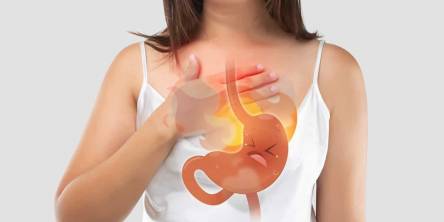7 Signs You Should See a Vein Doctor
Many people get varicose veins removed in order to restore the beauty of their skin. You may not have considered vein removal since aesthetics may not be your prime focus. Even if you're not concerned with cosmetic vein problems, there are times when you need to be. They have the potential to cause major issues.
How to determine when it's time to see a professional? Here are eight indicators that you should visit a vein treatment center:
1. One of your legs is hurt and swollen
This can be a symptom of poor blood flow. Although varicose veins don't hurt, the pressure they cause as your legs swell might cause aches and discomfort. Legs that are swollen may also feel heavy and painful.
By using compression stockings and keeping your feet elevated, you can get relief from these common varicose vein symptoms. But if you try it and it doesn't help, or if only one of your legs hurts, feels heavy or inflamed, or is retaining water, this might be an indication of poor blood flow.
2. You have fatigue in your legs
In most cases, standing for a long time shouldn't make your legs feel heavy, weak, or exhausted. However, if yours do and it occurs frequently, you should speak with a vein specialist to see whether your legs' veins are clogged or have another issue.
3. You had vein problems when being pregnant
Your blood circulation might be taxed during pregnancy. Varicose veins and hemorrhoids develop as a result of increased blood pressure, which puts additional strain on the veins' delicate walls. Speaking with a vein expert before becoming pregnant again may help you avoid getting varicose veins or hemorrhoids if you have had them in the past.
4. You’re dealing with chronic leg pain
Even while chronic pain can be brought on by a number of conditions, including shin splints, muscle strain, and arthritis, it can also be an indication of vein disease. If you have persistent pain that has no clear reason, a visit to a vein doctor can provide you with the information you need and help you avoid more serious illnesses.
5. Skin on your feet or ankles is dry and itchy
Dry, itchy skin may be really annoying. However, if the irritation makes its way to your feet or ankles, it can be a sign that your legs' circulation system is in trouble. This occurs on your ankles and feet because your blood must travel such a long distance to get there and occasionally does not reach the destination. If the soreness persists despite your efforts to alleviate it with moisturizer, it's important to speak with a vein doctor.
6. Venous disease runs in your family
It would be an understatement to suggest that there is a significant biological connection between vein problems, veinous disease, and genetics. You have a 40% risk of developing varicose or spider veins if one of your parents has or has had these conditions. Your odds rise to 90% if both of your parents have them. Be proactive if you are aware of your family history.
Your risks may be best evaluated by a vein expert, who can also recommend lifestyle adjustments that can lower them.
7. You have leg sores that don’t heal
Cuts and sores that don't heal are more than simply a nuisance. They may be warning signs of a deeper problem. For example, you may have a circulation issue if you see that minor scratches or cuts on your legs take longer to heal than they do on other parts of your body. A vein specialist should examine any sore that doesn't heal after a few weeks to see if a vein is the source of the problem.
Similar Articles
Despite the name, don’t worry, heartburn has nothing to do with your heart. Rather, it's a burning feeling in your esophagus, which is the 10-inch tube that connects your mouth and stomach.
Numerous natural cures for back pain can help you minimize your pharmaceutical use or supplement your current medical treatment. Here are some of the natural pain-relieving strategies to see which one works best for you.
Cycling is more than just a sport or a leisure activity; it's a way of life for many. Whether you're an avid cyclist or use your bike for transportation, there's a lot to love about this two-wheeled mode of getting around. But with great rides come great responsibilities, particularly when it comes to safety.
Have you observed any changes in your movement, speech, or thinking? If this is the case, you may wonder if the changes need a visit to a neurologist. A neurologist is a doctor who diagnoses and treats disorders affecting the brain, spinal cord, and nerves
Lower back pain is a common and often severe issue that affects millions of individuals throughout the world. While many of us have dealt with lower back pain at some point in our lives, there are a few interesting facts about this illness that you may not be aware of. In this article, we'll delve into seven intriguing and lesser-known facts about lower back pain, shedding light on its causes, impact, and potential solutions.
According to the American Association of Neurological Surgeons, approximately 75%-85% of Americans have back discomfort at some point in their lives. Upper back pain is commonly caused by small injuries such as muscle strain, sprain, bad posture, inappropriate lifting, or twisting, although it is not always caused by a herniated disc.
When it comes to the most common basketball injuries, some are widespread for players of all ages and ability levels, while others are only seen at the highest levels.
When you think about sports injuries, you generally think of football, basketball, or soccer. All three of these sports demand players to put their bodies on the line regularly. Contact is widespread, and tackling is an essential component of the game of football.
In the fast-paced world of healthcare, OBGYN practices face numerous challenges, from providing quality patient care to managing complex billing processes. As medical professionals strive to focus on patient well-being, the administrative burden of billing and coding can be overwhelming.









